News
Why more restaurants are asking for deposits
Friday, July 29th, 2016
One of the latest trends to hit the restaurant industry in South Africa is the request of deposits for reservations, especially at some of the country’s top restaurants. In both Cape Town and Johannesburg, restaurants have asked diners to put down a payment ranging from R120 to R750 to secure their seat in order to reduce the number of no shows.
While some diners take umbrage at the measure, we chatted to a few local restaurant owners to get their side of the story.
Secure group bookings
One thing that’s not uncommon is for restaurants to take deposits for larger group bookings. These larger tables can take up most of the restaurant and losing out on that business could be damaging to the restaurant. Paying a fee upfront also means that clientele have the security that their table is booked and waiting for them. Culinary Table in Lanseria charges a small pre-booking fee for 20 people or more with a minimum charge of R165 required and a deposit of R120 per person.
Mari Dartnall of Restaurant Mosaic at The Orient outside Pretoria has a similar policy. She explains, “If a group cancels on short notice, for example, on a Sunday two hours before the reservation, the produce is wasted. Thus we are compelled to ask for credit card details to secure the booking, or to ask for a deposit to be paid for group reservations.”
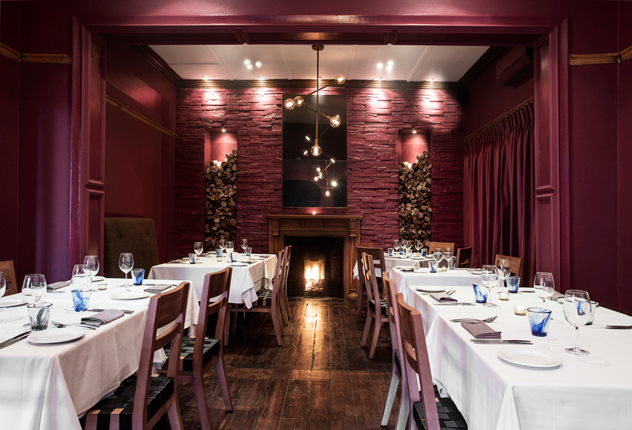
La Mouette. Photo supplied.
Reducing the number of last-minute cancellations
There is a definite negative effect both for clients and the business when it comes to no shows. Mari Vigar of La Mouette in Cape Town explains, “When this happens, not only does it impact the guest who really wanted to eat at the restaurant, but also the staff and their earnings, the food margins, the overall finances and the ambience, to name but a few.”
It’s all about reducing the no shows, reiterates Eat Out’s reigning chef of the year, Scot Kirton. His Constantia restaurant, La Colombe (recently ranked 76 in the World’s 50 Best Restaurants Award) has also introduced a deposit of R300 per person.
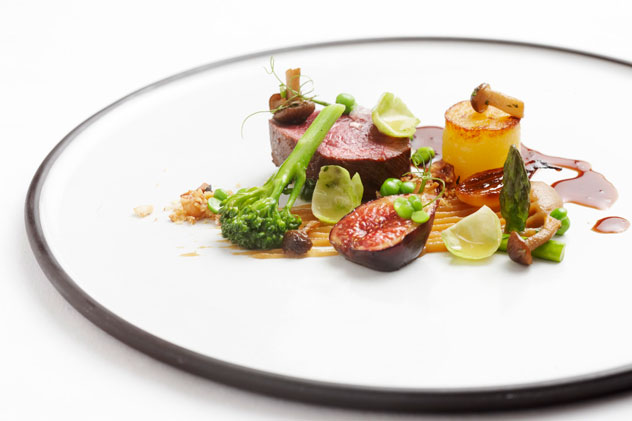
One of the winter menu dishes at La Colombe. Photo by Micky Hoyle.
This move came after an increase in instances of guests not calling in to confirm or cancel their bookings, resulting in empty tables. Scot says, “There are unfortunately some people who make multiple bookings at restaurants and then decide which one they feel like going to on the day, and cancel last minute – or not at all.”
Other factors also come into play, says Scot. “We are a small restaurant and seat a maximum of 60 guests (we have almost zero walk-ins, so we cannot refill these seats). In the past we were losing, on average, eight guests a service, which is 13% of our turnover – basically the profit for the service.”
The Tasting Room at Le Quartier Français in Franschhoek was one of the first restaurants in the country to implement a booking deposit system some years ago. Culinary manager Eleanor Kerwan has explained that is definitely necessary and that, with the long waiting list, empty tables mean a loss of business. The team takes 50% of all cancellation charges and donates it to the Isabelo Feeding Scheme.
At Cube Tasting Kitchen in Parktown North, there is a stricter policy: No shows on the night of the reservation will be charged at the quoted menu price.
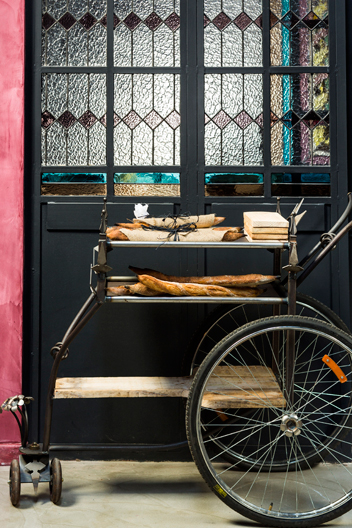
The Shortmarket Club. Photo supplied.
Making use of an online booking system
While some restaurants make use of their own system for deposits, Dineplan, an online reservation book for restaurants, has made it easier to do this seamlessly. The Pot Luck Club, The Test Kitchen, The Shortmarket Club and Luke Dale-Roberts at The Saxon have all implemented this for their bookings.
Greg Whitfield, director of Dineplan explains, “I would say roughly 20% of our clients use the payment functionality, to different degrees. There are obviously also restaurants that use Dineplan but choose to not use the payment functionality, so the percentage of restaurants that take deposits could be higher than that.”
Jeremy Nel of Luxury Brands, which manages La Colombe’s marketing, says they’ve found Dineplan a user-friendly option. The system requires a pre-payment via credit card of a set amount per person (at the restaurant’s discretion). Should a patron wish to cancel the booking no later than 24 hours beforehand, they will be refunded the full amount. All credit card transactions are processed through a third-party secure payment portal and the details are not seen or stored by the system.
Implementing other alternatives
El Burro, a popular Mexican eatery in Cape Town, has seen its fair share of last-minute cancellations and no shows. While they understand the need for deposits, they have managed to work out a system where they can avoid this as much as possible – unless its for a table of 20 or more.
El Burro and El Burro Taqueria owner Nic Haarhoff explains, “We have learnt to manage our bookings to avoid no shows. We phone every booking every day to ensure they are still coming. Granted, it’s time consuming, but by calling we get to have first-hand info on whether the table has changed in numbers and time.”
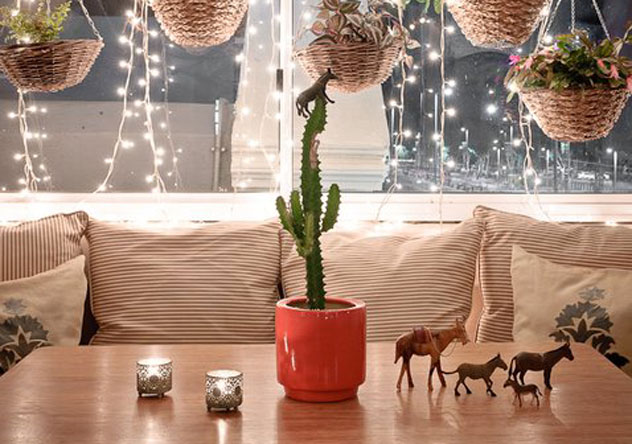
Jethro had always been the most adventurous of the El Burro donkeys, but even he conceded that climbing this particular tree had been unwise. Photo supplied.
Keeping things strict is also a way to avoid unnecessary empty tables. Explains Nic: “We will give away tables that are later than 30 minutes if we cannot get hold of the person who booked. We call two to three times, and if the calls are not answered, we then give the table away. Naturally, we are aware that life happens and are more than happy to keep tables for longer if people contact us and let us know they are running late.”
When asking his patrons on whether they would pay a deposit, many of them said they would prefer not to: “I suppose people are more willing to pay deposits for ‘fine dining’, but not really for everyday eateries such as us.”
Do deposits work?
Since La Colombe started taking deposits, it has reduced no shows by 75%. “So it does work,” confirms Scot. “We were very hesitant to start it, but unfortunately were forced into it by selfish guests. We have found that most people do understand the reasons for asking for a deposit.”
Mari Vigar from La Mouette has also received positive results: “Currently, our online reservations for the season are pouring in, with all guests happily paying their deposits upfront without any questions asked. Guests who truly wish to dine at our restaurant are more than happy to pay a deposit – which is refunded in full on the night and everyone is happy. The staff have a great service, the kitchen runs at capacity, the landlord gets paid and the margins remain intact.”
While patrons can probably rest assured that their favourite family spot won’t be taking deposits anytime soon, more fine-dining establishments and stylish boutique eateries could very well be enforcing this rule. In the meantime, it might be best to just stick to the booking, or cancel well in advance if you can’t make it.

Jeremy was slightly perturbed by the new deposits system. It meant fewer no-shows, and he thus enjoyed fewer unused fish portions in his breakfast bowl.










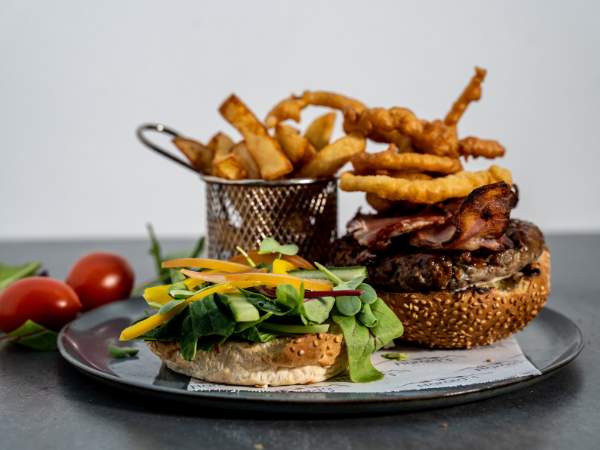
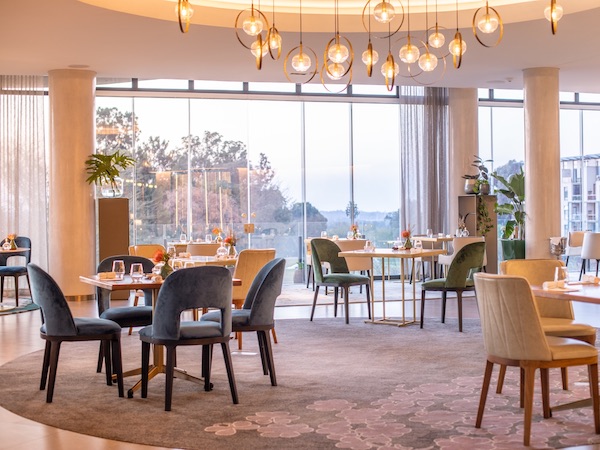

I am all in favour of charging a deposit. When we ran our restaurant Parks in Constantia, we had a regular guest who would book a table for 8 on a Saturday and then not pitch. I later found out that he would book at three restaurants and then invite guests to a drink at his home and then say that he had bookings at three restaurants so where should they go to eat. Once the choice was made the other two restaurants were left with a table of each. Charge ’em.
Not pitching, or cancelling with too little notice is just plain rude.
I think it’s good restaurants who clearly have excess demand than seats are charging deposits, just like so many other industries. It will also cut out people double or triple booking restaurants and deciding last minute, a well known practice! Bottom-line, it will make us all realise the real impact of no shows. Furthermore, it depends on which market the restaurant is operating in – El Burro understands its clients will be less willing to pay therefore does the grind (and no doubt has good walk-in trade to pick up the slack); La Colombe knows people plan ahead and have the disposable to pay a deposit. Good on those who have pioneered this, as it has been resisted sternly up until recently.
Hi,
We recently had an experience with a restaurant regarding a deposit, which i would like to share. I contacted the restaurant on numerous occasions to find out what the cancellation policy is regarding the deposit. They did not respond until I insisted to know, about 5 emails later.
So we paid our deposit, and sure as can be. On the day, one of the 8 people had bronchitis and got booked off by the doctor. He, funnily enough works as a restaurant manager himself. We contacted the restaurant on the morning of the same day of the booking, and we were plainly told, No refunds.
I can understand that restaurants want to protect themselves, but now, the consumer is not protected. As with any travel or flights, or hotel bookings, I can take out insurance covering me in case i fall ill, or somthing unforseen happens.
But no such insurance exists for restaurant bookings. So the restaurant owners have no shifted the risk onto the consumer, which in my opinion is against the consumer protection act.
That is my opinion.
Thanks.
For Cube you have to pay the full meal up front, THAT
I find totally unacceptable. I am happy to pay a deposit.
Generalising, if people have nothing to lose they don’t care. It applies to the restaurants too, when setting up a new restaurant and ordering the equipment the supplier has to have a 50% non refundable deposit upfront. A signed quotation and order number is not worth the paper its written on. Interesting how ethics and commitment has deteriorated over the decades. In my father’s day a handshake was all that was required, then an official signed contract was essential, over the years the non refundable deposit has steadily increased. Now even a signed contract and a non refundable 50% deposit is not a guarantee that the buyer will not renege. I know of one restaurant that has been sold 3 times and it’s still for sale because the buyers walked away losing their deposit. The broker suggested that he keeps his business for sale permanently, he’s making more money than running it! Question is, how will humanity ever go back to being ethical?
I think paying a deposit shows commitment to showing up to you chosen venue.
However what happens if you pay a £10 pp deposit and the numbers reduce.? Do you forfeit the difference even if the majority of the party are attending, or does the restaurant keep your cash for those not able to make it.
eg £200 deposit for 20 only 17 can make it, should the final bill be reduced by £200 or £170 ?
I am visiting S.A on vacation next week and these deposits are mounting up. Going out and enjoying the amazing food SA has to offer every night of the trip and some places want the full amount in advance. I’ve never experienced this anywhere else and means I am paying out on behalf of our group of six all the time as I am the organiser.